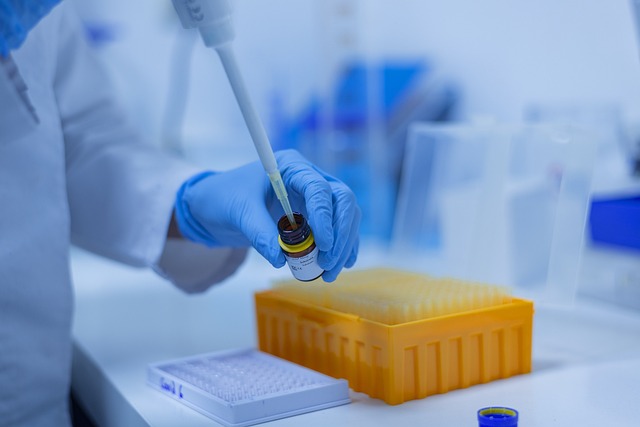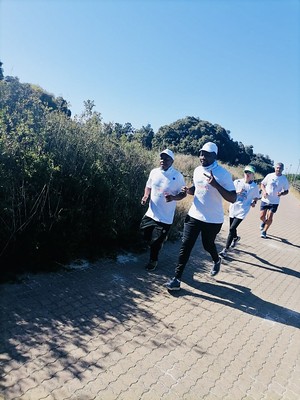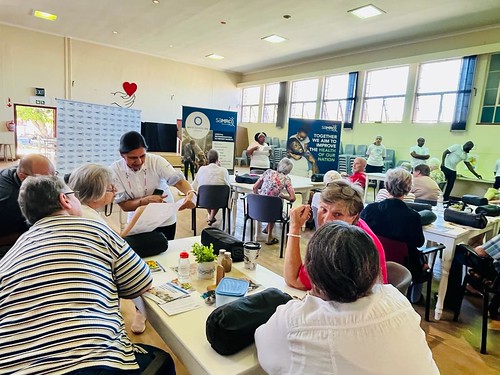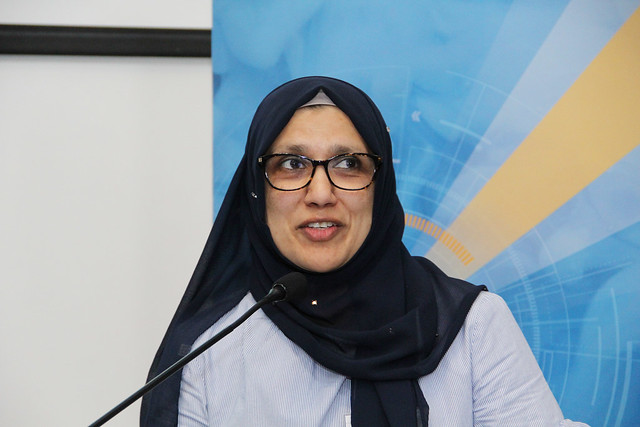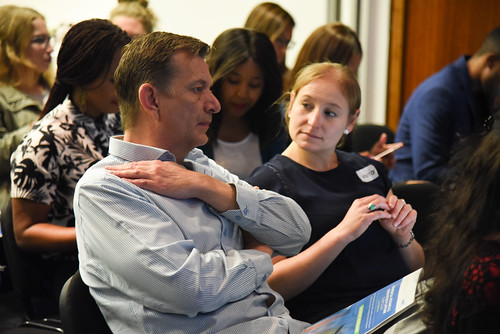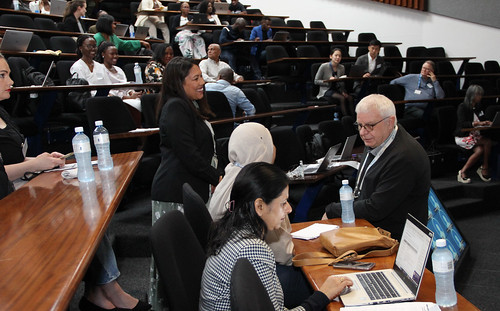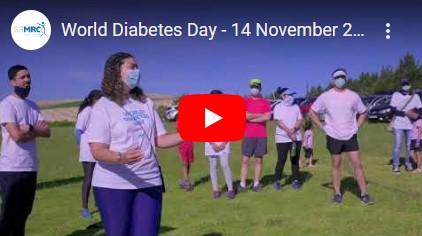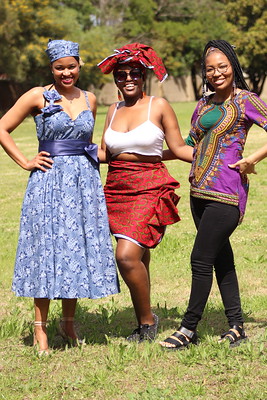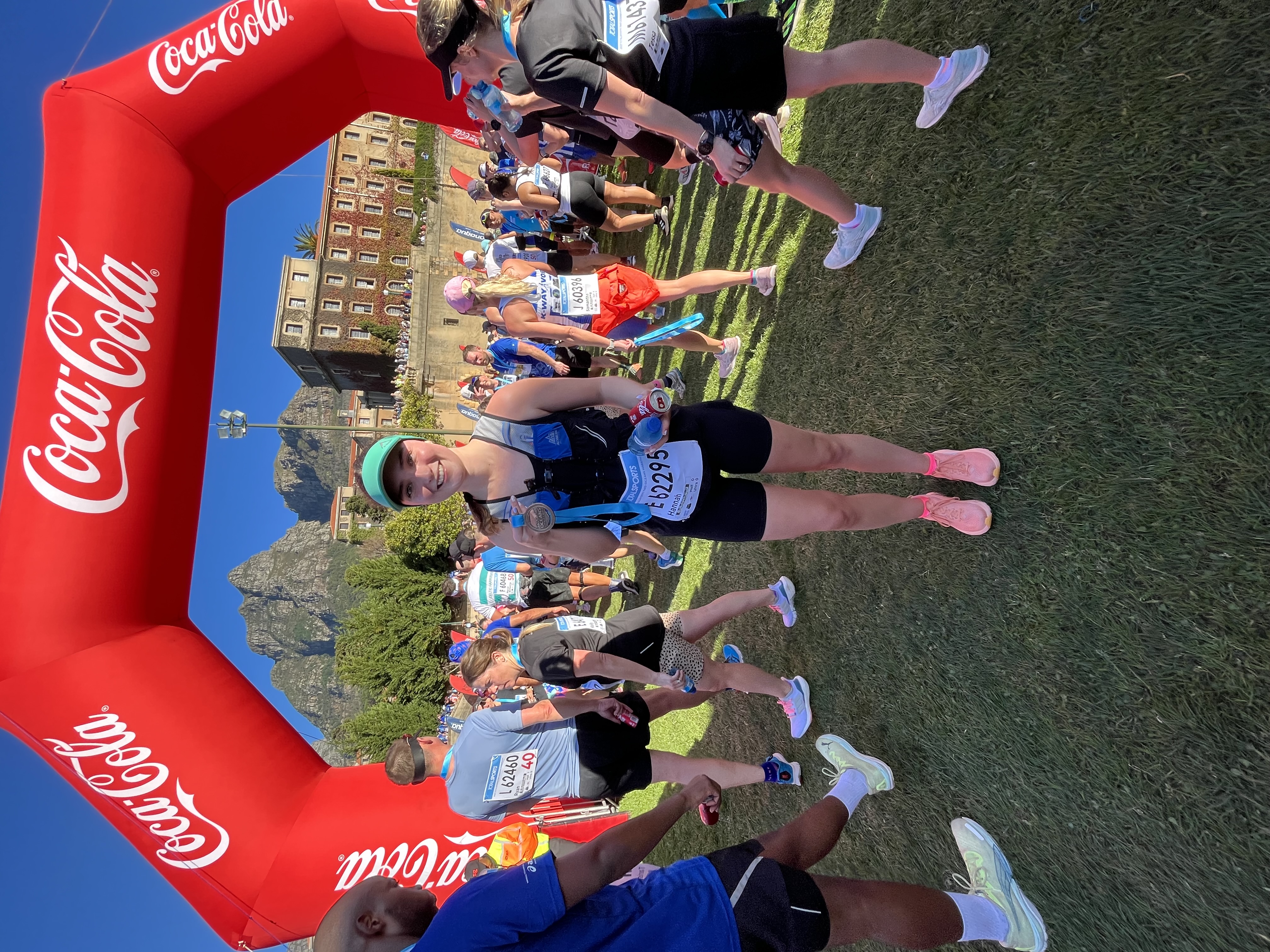Biomedical Research and Innovation Platform
The Biomedical Research and Innovation Platform (BRIP) was established in April 2006 by the South African Medical Research Council, as a spin-off from the former Diabetes Research Group of the Medical Research Council.
The BRIP has more than 20 years of experience in the field of histology, image analysis, immunocytochemistry, molecular biology and tissue/cell culture systems.
Key Focus Areas
The Biomedical Research and Innovation Platform (BRIP), in response to the strategic objectives of the SAMRC, conducts cutting-edge research and knowledge generation in non-communicable diseases (NCDs), innovative research to improve health outcomes, builds capacity in health research and adheres to good corporate governance. BRIP’s strategic objectives focus on:
- Conducting responsive research on key health challenges facing South Africa such as obesity, diabetes, hypertension, and its associated cardiovascular complications, using state-of-the-art methods to unravel the mechanisms that underlie these metabolic disorders and to identify therapeutic targets and biomarkers of disease risk.
- To identify therapeutics from within Africa’s indigenous resources, where BRIP has recently established an African Traditional Medicines (ATM) platform to serve as a pipeline for therapeutic screening in Africa.
- Developing new methodologies for detecting anti-retroviral (ARV) metabolites as emerging pollutants in the aquatic environment within the Wastewater Surveillance and Research Programme (WSRP).
- To map the genetic and epigenetic landscape of cancer in Africa.
Announcements
On 13–14 May 2025, the Division of Research Capacity Development, in collaboration with the Biomedical Research and Innovation Platform, successfully hosted a two-day Soft Skills Workshop at the SAMRC Conference Centre. Facilitated by Dr Abeda Dawood and Dr Lindokuhle Ndlandla, the workshop welcomed approximately 30 attendees.
This dynamic and interactive workshop equipped young scientists from PUDAC, the Genomics platform, and BRIP with essential personal and professional development skills. Key focus areas included self-awareness, emotional intelligence, goal setting, time management, teamwork, leadership, communication, digital literacy, adaptability, resilience, and personal financial management.
The workshop forms part of RCD’s ongoing efforts to empower emerging researchers with practical tools for personal growth, professional effectiveness, and long-term success in their scientific careers.

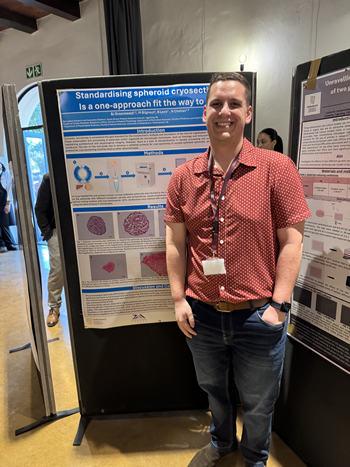 It gives us great pleasure to share that Bernie Groenewald, one of our PhD students, has been awarded third prize in the poster competition at this year’s SACCMA Conference hosted in Stellenbosch last week. According to their website, The Society for Advanced Cell Culture Modelling for Africa (SACCMA) is a professional network of researchers with an interest in creating and using specialized and advanced cell-based models, bioengineering, bioprinting and stem cell cultures to address developmental questions, study disease initiation and development, treatment screening and cell biology. Bernie’s poster, titled “Standardising spheroid cryosection: Is a one-approach fit the way to go?” impressed the judges with its scientific merit, clarity, and innovative approach to working with advanced cell cultures. The award is testament to the great work that Bernie is doing. His PhD project looks to establish a novel human corneal epithelial spheroid model that recapitulates diseases and damage of the corneal epithelium and can thus be used for the screening and development of new pharmaceutical products.
It gives us great pleasure to share that Bernie Groenewald, one of our PhD students, has been awarded third prize in the poster competition at this year’s SACCMA Conference hosted in Stellenbosch last week. According to their website, The Society for Advanced Cell Culture Modelling for Africa (SACCMA) is a professional network of researchers with an interest in creating and using specialized and advanced cell-based models, bioengineering, bioprinting and stem cell cultures to address developmental questions, study disease initiation and development, treatment screening and cell biology. Bernie’s poster, titled “Standardising spheroid cryosection: Is a one-approach fit the way to go?” impressed the judges with its scientific merit, clarity, and innovative approach to working with advanced cell cultures. The award is testament to the great work that Bernie is doing. His PhD project looks to establish a novel human corneal epithelial spheroid model that recapitulates diseases and damage of the corneal epithelium and can thus be used for the screening and development of new pharmaceutical products.
Ms Ayesha Shaik, a PhD candidate at the Biomedical Research and Innovation Platform (BRIP) and Stellenbosch University, was recently invited to give a plenary talk at the 12th Seoul International Congress of Endocrinology and Metabolism in conjunction with the 43rd Annual Scientific Meeting of the Korean Endocrine Society, held in Seoul, South Korea from the 11th – 13th April 2024. Ms Shaik received a travel award to the value of 600 USD to attend the conference and presented an aspect of her MSc research entitled “DNA methylation profiling of metabolic inflammatory and stress response genes in South African women with obesity: Implications for mechanisms, biomarkers and early interventions for type two diabetes”. Importantly, Ms Shaik won the award for the best plenary oral in the Diabetes/Obesity\Lipid (Clinical) category, to the value of 400 USD. On behalf of BRIP, we congratulate Ayesha and her supervisors (Dr Tarryn Willmer and Profs Carmen Pheiffer and Faadiel Essop) on this excellent achievement.
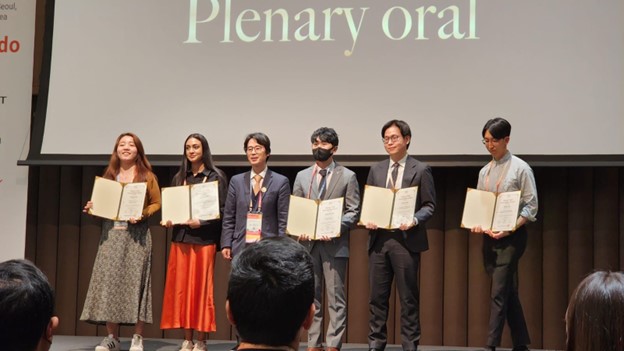
Prof Hans Strijdom, Head of the Division of Medical Physiology in the Faculty of Medicine and Health Sciences (FMHS) at Stellenbosch University, delivered his inaugural lecture on Tuesday 15 August 2023. The title of his talk was “The vascular tree of an academic career: tortuous, turbulent and dysfunctional, interspersed with glorious moments of laminar flow".
View the complete Article
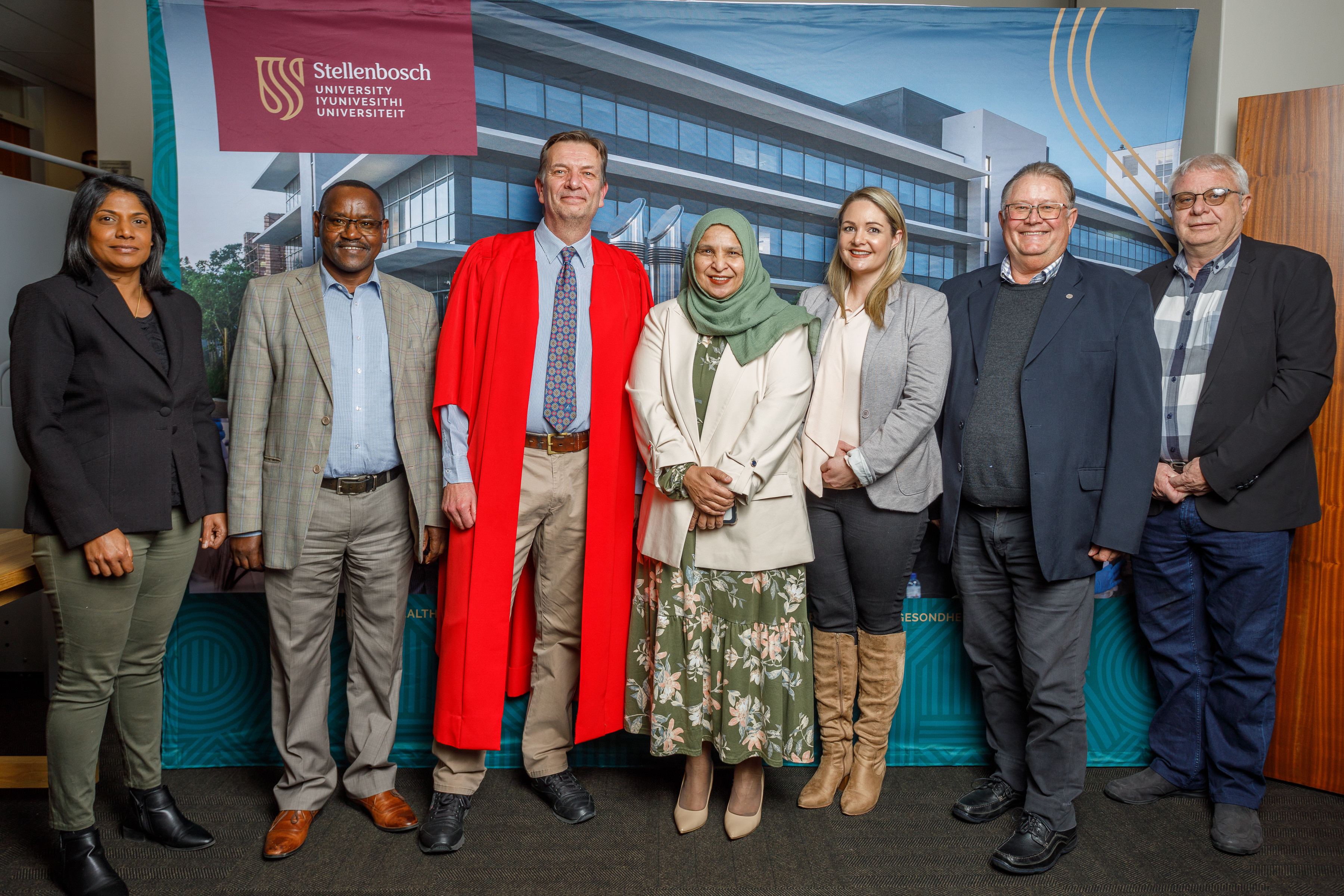
On Friday the 9th of June 2023, the first cohort of students of the Chan Soon-Shiong Family Foundation (CSSFF)-SAMRC Studentship Programme received their certificate after completing the introductory training course in biopharmaceutical manufacturing. The CSSFF-SAMRC capacity development programme aims to grow the next generation of biopharmaceutical manufacturing professionals, researchers, and technical experts needed to establish an industry in (South) Africa.
The Biomedical Research and Innovation Platform hosted its first breast cancer consortium meeting in Cape Town on the 2nd August 2023. The meeting, chaired by Dr Tarryn Willmer, brought together a multidisciplinary team of research scientists and clinicians with an overarching aim to harness resources and expertise for breast cancer research in Africa.
Breast cancer remains the leading cause of death in women globally, with low and middle-income countries being disproportionally affected by the disease. Africa has the highest age-standardised breast cancer mortality rate in the world but despite these dire statistics, studies on the unique genetic, environmental and socio-economic factors driving tumour biology and clinical behavior in Africans is lacking.
To address this knowledge gap, a breast cancer consortium meeting, hosted by BRIP, brought together clinicians and scientists from various institutions (including SAMRC Genomics, GENEdiagnostics, University of KwaZulu-Natal, University of Limpopo and Sefako Makgatho Health Sciences University) to address pertinent questions, needs, and resources concerning breast cancer care in South Africa. Highlights of the meeting include a transdisciplinary collaborative partnership between surgical oncologists, pathologists, and cell and molecular biologists, where presentations were given, and the team engaged in insightful discussions across the disciplines. Those in attendance agreed that Africa has the scientific and intellectual capacity, as well as the necessary resources to tackle health challenges and formulate solutions for Africa’s health problems. Dr Tarryn Willmer, a senior research scientist at BRIP said, “This consortium will expand our understanding on breast cancer in Africa by fostering collaborations among researchers and clinicians, and establishing a concrete framework for the implementation of Afrocentric research, sharing of resources and analysis of pooled data.”
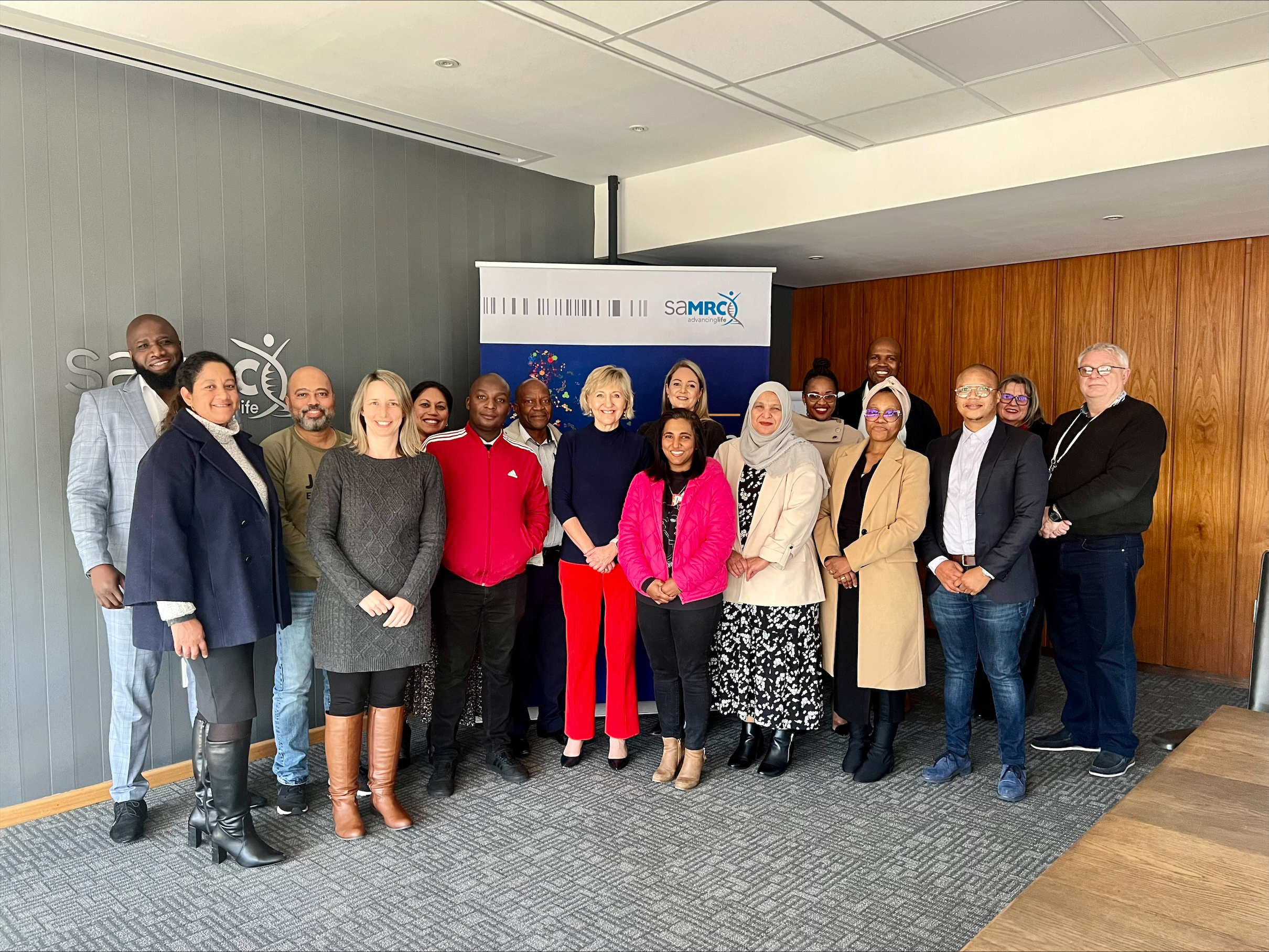
The South African Medical Research Council Scientists, Drs Nonhlakanipho Sangweni and Ikanyeng Dolly Seipone, in conjunction with The Association of South African Women in Science and Engineering, participated in the Western Cape Department of Education and Eskom National Science week at Wesbank Secondary School, Malmesbury, on the 31st of July. The objective of the 2-day outreach program was for Women in Science to inspire and empower high school girls from disadvantaged communities. At the beginning of the event, students showcased various scientific innovations, followed by demonstrations by scientists from institutions such as the South African Medical Research Council, Stellenbosch University, University of the Western Cape and University of Cape Town. Students had firsthand experience on techniques such as DNA extraction as well as the use of microscope to evaluate disease morphological features. Students also receipt prizes for answering basic health science-related questions. According to Dr Ikanyeng, "the event was a heartwarming experience to see a room full of enthusiastic faces of girls eager to learn about science, this gives me hope that this is a generation of girls that will break the glass ceiling and close the gender gap in Science". "The domino effect of sharing knowledge with young girls is a powerful generation of women that are aware of the vast opportunities available to them, despite their backgrounds, and how they can use their voice and learned skills as a tool to bring about global change. I was very excited to witness the budding greatness presented by these girls and their keenness to creating a more sustainable South Africa using science", added Dr Sangweni. Researchers hope to make their participation in this annual event a regular occurrence as they bring science to under-resourced communities.
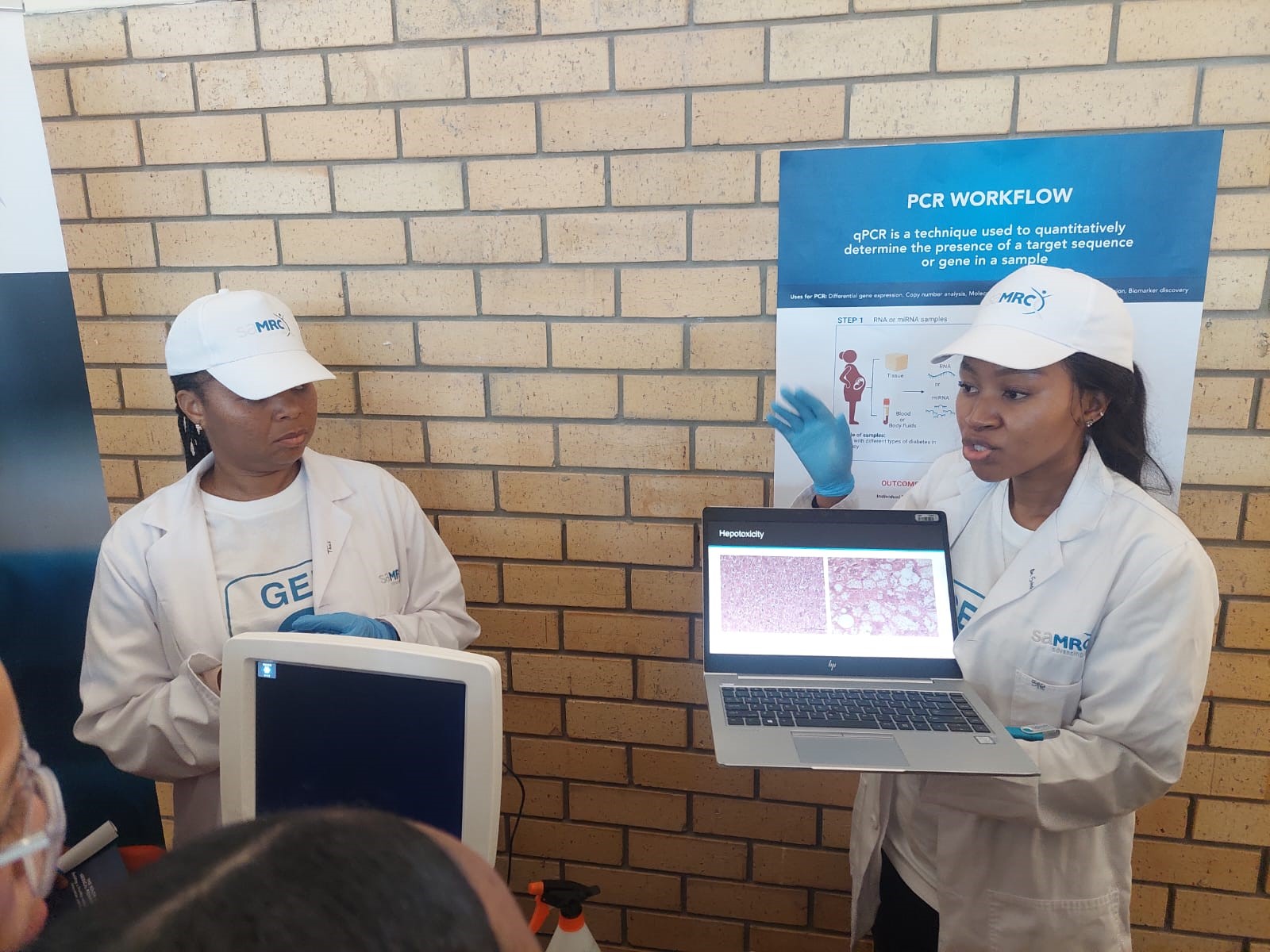
Pretoria, South Africa | The South African Medical Research Council (SAMRC) would like to congratulate Prof Rabia Johnson, a Chief Specialist Scientist and Deputy Director at the SAMRC for scooping the 2023 Forbes Woman Africa Academic Excellence Award. The award was presented to her based on her research work conducted within the last 20 years.
View the complete Press Release
Julia Goedecke, Chief Specialist Scientist at BRIP, is the Coordinator and Co-PI of international collaborative study: OPTIMA - Omics Approach for Personalised Prevention of Type 2 Diabetes Mellitus for African and European Populations. The OPTIMA project has just been highlighted as one of the Success Stories of Africa-Europe Research Collaboration in Personalised Medicine.
The SAMRC’s Biomedical Research and Innovation Platform (BRIP) and the Non-Communicable Research Unit (NCDRU) successfully hosted another World Diabetes Day Awareness Campaign at Jack Muller Park on the 20th of November. Walkers and runners alike completed either a 3 or 5 km route around the park to promote physical activity. Lifestyle modifications, such as increasing physical activity and eating healthy, nutritious foods are an essential part of managing or even preventing diabetes and other metabolic diseases. Supported by Corporate and Marketing Communications Division, the theme for the year, access to diabetes care, was promoted and information around diabetes risk factors and management was shared. View the SAMRC World Diabetes Day Brochure
The theme for 2022 is “Access to Diabetes Care for All” and under the initiative of “Education to Protect Tomorrow”, SAMRC staff and students went out to the Parow Senior Centre sharing important information on Diabetes care and preventive measures.
The 55th SEMDSA Congress was held this past weekend, 8-11 September 2022 and a few of our colleagues and students had the pleasure and opportunity of attending and presenting their work and studies.
We Acknowledge and Congratulate two of our colleagues who received Awards for the work they do; and because of them, BRIP received 5 awards!
Huge Congratulations to YOU BOTH.
- Travel Award
- Endocrine Publication Award (Basic Sciences)
- Best Poster award (Basic Sciences)
- Diabetes Publication Award (Clinical)
- Diabetes Publication Award (Basic Sciences) - Award to Amy Mendham (Julia’s postdoc)
The South African Medical Research Council participates in the Global Alliance for Chronic Diseases, a collaboration of major international research funding agencies that support joint funding calls and research capacity building activities to address chronic, non-communicable diseases. The alliance focuses on implementation research in low- and middle- income countries (LMICs) and in vulnerable and indigenous populations in high-income countries (HICs).
The GACD have announced the launch of the Implementation Science e-Hub. The e-Hub is a free, virtual platform for knowledge and skill development in implementation research. It is intended for researchers, students, policymakers and practitioners at any stage in their career, from anywhere in the world, interested in improving their knowledge of implementation research, especially its application for the prevention and management of non-communicable diseases in low-resource settings.
For further information, visit https://gacd.org/research/implementation-science-capacity-building/implementation-science-e-hub
Conference & Symposium
Social
BRIP staff and students made significant contributions to the SAMRC World Diabetes (14th November 2024) and Health Awareness Walk (16th November 2024), demonstrating our commitment to promoting health and wellness. The events highlighted the importance of diabetes prevention, awareness, and healthy lifestyles, fostering a sense of community and shared purpose. Our participation underscores our dedication to supporting initiatives that empower individuals to take charge of their health and well-being.
“Heritage is generally defined as an acknowledgment of historical artifacts, practices, and sites that should be preserved for the benefit of future generations.”
BRIP celebrated the rich and diverse tapestry that makes up the team with our infamous “braai under the tree”. A time of sharing food, stories and everything that makes us PROUDLY South African. We are stronger together and are fortunate to stand on the shoulders of giants.
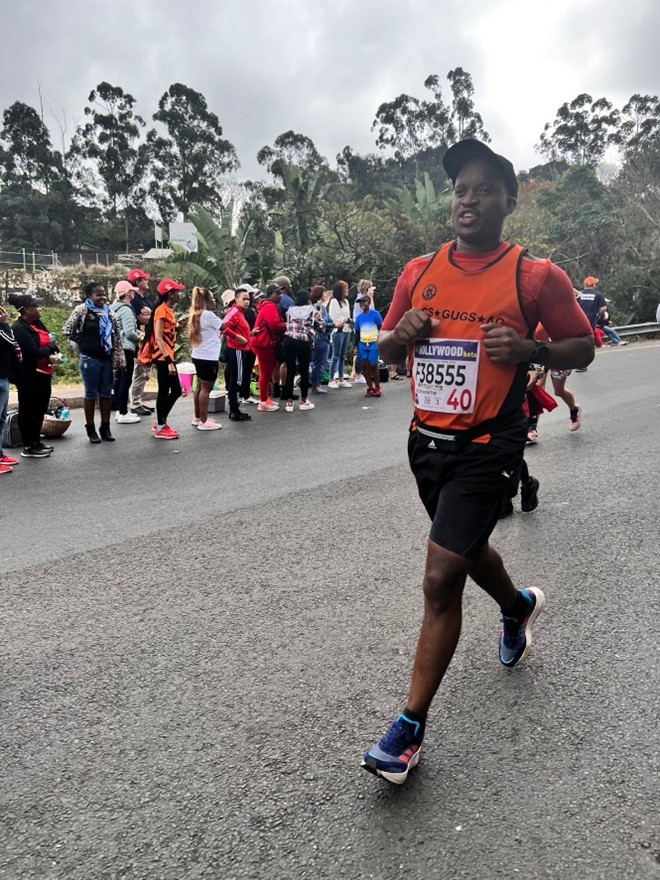 On Sunday the 28th August, Dr Kwazi Gabuza, senior Scientist at the Biomedical Research Innovation Platform, took part and completed his second Comrades marathon.
On Sunday the 28th August, Dr Kwazi Gabuza, senior Scientist at the Biomedical Research Innovation Platform, took part and completed his second Comrades marathon.
The Comrades Marathon is an ultramarathon of approximately 89 km, which is run annually in the KwaZulu-Natal province and is said to be the world's largest and oldest ultramarathon race. The race takes place between the cities of Durban and Pietermaritzburg, with the direction of the race alternating each year between the "up" run (87 km) starting from Durban and the "down" run (now 90.184 km) starting from Pietermaritzburg. The race had been postponed in 2020 and 2021 due to the COVID pandemic.
Completed the race for the 3rd time in a race-time of 10:52:59, Dr Gabuza said "It was uncertain that the Comrades would take place this year, following the two year break and the restrictions that were only scraped early this year. Only in March was everyone made aware that it will be happening in 2022.
My training then started with the hope to be fully fit by 28 August. The two-year break definitely took its toll on the runners. It was a very challenging Comrades marathon, much harder than my previous attempts in 2017 and 2019.”
Well done Kwazi and congratulations on finishing yet another Comrades marathon. Here’s to many more to come
All the effort of early mornings and late nights on the road are paying off for Dr Kwazi Gabuza, a Senior Scientist at the Biomedical Research and Innovation Platform (BRIP). On the 15th of April, Dr Gabuza completed his 5th Two Oceans Ultra Marathon in a time he can be proud of (6h30min)! The gruelling 56 km race saw runners face strong head winds on the flatter part of the course, with the reward of the enormous climb up Chapman’s Peak Drive and then Constantia Neck to test those legs and lungs. Well done Kwazi – we are so proud of you. We cannot wait to see what you do at Comrades 2023. All the best with the rest of your training while still maintaining a high level of research, mentoring and keeping office humor light.
Following closely in Dr Gabuza’s footsteps is one of BRIP’s MSc students, Ms Hannah Fokkens, who completed her first Two Oceans Half Marathon in a more than respectable time. We know that this is only the beginning of your running achievements – well done Hannah!
Dr Kwazi Gabuza – TTOM Ultra Marathon |
|

